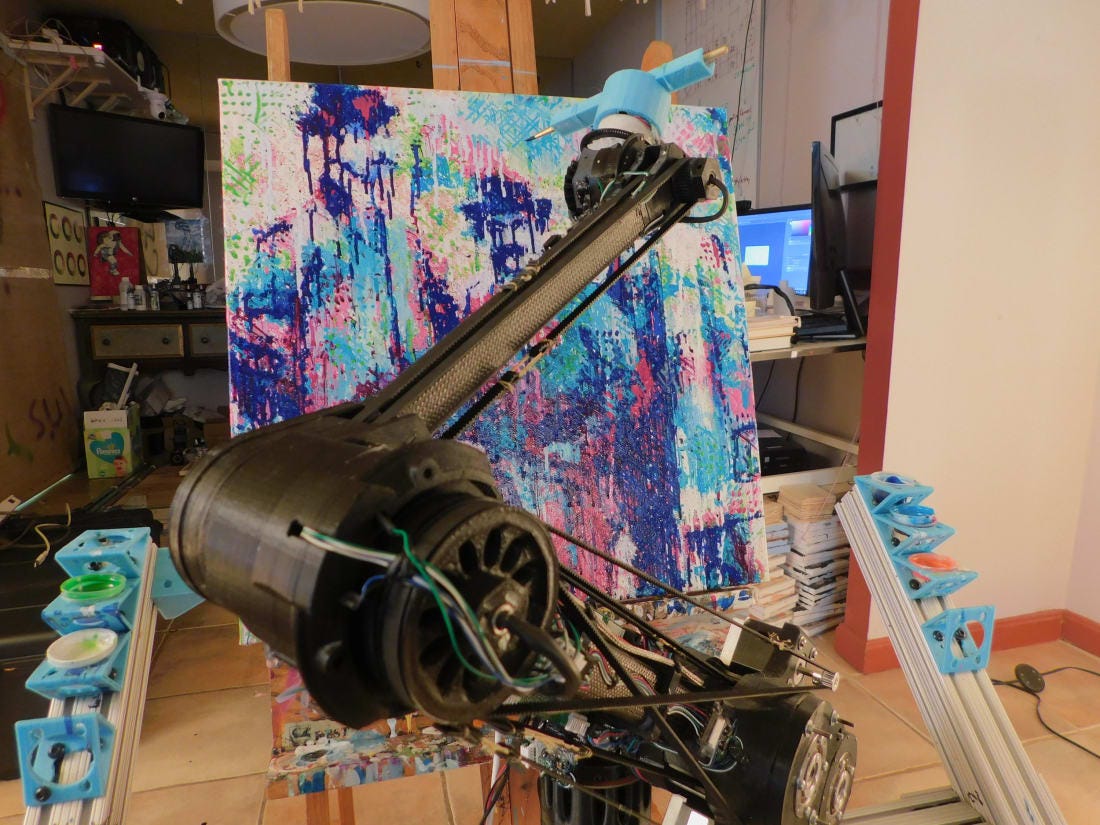Hey there,
It’s Mikal Khoso and welcome to Trajectory, a newsletter about non-obvious trends at the intersection technology, economics and politics globally.
It’s nearly the end of the year (and decade) and this week I’m going to briefly review all the editions of Trajectory published this year.
Thanks for being a subscriber and see you on January 16th, 2020 for the next edition!
Happy holidays,
Mikal
2019 in Review
Trajectory #1: B2B Rental Models
A couple months ago I wrote The Rental Economy, an article about a growing wave of consumer startups I have seen that allow consumers to rent an asset or good as opposed to buy it. The article was picked up by Axios in their coverage of the issue as part of a surge of press attention on the subject.
Trajectory #1 detailed a few examples of B2B rental models and analyzed some of the business models underpinning them.
Trajectory #2: Can AI Create?
I’ve been thinking about the limits of what machine learning and AI are capable of for a while and creativity is one thing that may be beyond their reach. While we have AI-created music and art and more, the question remains on whether this is really creativity at all.
Trajectory #2 talks through what makes up creativity and how machine learning systems might simply not fit this definition.
Trajectory #3: The AntiTrust Hammer
Trajectory #3 was my first public writing about antitrust concerns in the technology industry even though it’s a topic that I find deeply important. Today, a growing chorus of outrage worldwide is driving regulators to investigate the tech industry. Regulators and the general public have legitimate antitrust cases against the Big Four tech companies - Apple, Facebook, Google and Amazon.
Trajectory #3 dove into the details of these antitrust concerns and analyzed why they are well grounded claims.
Trajectory #4: Cellular Agriculture
Trajectory #4 was about the challenge of decreasing the carbon intensity of industrial meat production. Globally livestock accounts for a shocking 14.5% of all emissions. These emissions are only going to increase as the world’s population grows and gets richer. The last few months have seen a wave of press attention and public awareness around plant-based, “meatless meats” as a replacement for meat consumption.
Trajectory #4 examined the impact of meat production on the world and explored a little known but potentially better long-term alternative - cellular agriculture, also known as “lab-grown meat.”
Trajectory #5: Surveillance in Public Spaces
Facial recognition technology is the most prevalent and widely known version of public surveillance, but a slew of other methods are under development that serve the same function. Privacy is increasingly disappearing in the internet age. But privacy in public spaces is going to be non-existent in the near future.
Trajectory #5 analyzed the range of surveillance technologies available to governments and analyzed what this means for the world.
Trajectory #6: American Isolationism
Trajectory #6 was about the question of America’s increasing return to isolationism. Public sentiment and the media pin the cause of this on President Trump’s unilateral foreign policy moves and his “America First” doctrine. But this is lazy analysis and doesn’t delve into the true drivers of America’s return to isolationism. Deep US engagement with the rest of the world is a historical anomaly. Isolationism has been the historical norm.
Trajectory #6 briefly outlines how the US emerged from isolationism to become the leader of the world and then analyze the real drivers behind the return of US isolationism.
Trajectory #7: Short-Termism in Capitalism
Politicians and the public lambast public markets and public market investors as being overly short-termist and putting tremendous pressure on companies to maximise short-term returns. Often, maximising short-term returns is said to come at the expense of long-term company sustainability and environmental / public health. But in many ways I believe the idea that public markets are short-termist is a narrative mirage.
Trajectory #7 delves into the history of shareholder value theory and explores alternatives to the public market including the Long-Term Stock Exchange and alternative stock structures.
Trajectory #8: The Access Act of 2019
Trajectory #8 was about a recent bill proposed in the US Congress around creating new standards for data portability and interoperability on social networks like Facebook, Whatsapp and Instagram. The bill is smart regulation and is thoughtful in how it defines large communication platforms, where it places the burden of adhering to regulation and the rights its gives consumers.
Trajectory #8 outlines why this is a good bill but discusses why it doesn’t go far enough and what the next phase of tech regulation needs to look like.
Trajectory #9: The Autoimmunity Crisis
There is a quiet public health crisis brewing globally. Diseases of autoimmunity are soaring globally and 23.5m Americans live with an autoimmune disease. The rise of autoimmune diseases has been theorized as linked to the decreasing diversity of our microbiome thanks to chemical exposure and lifestyle changes.
Trajectory #9 analyzes the autoimmune crisis globally and then explores theorized causes including genetics, chemical exposure and decreasing microbiome diversity.
Trajectory #10: A World Data Organization
The internet is fragmenting into dozens of different internets. The world needs a new global regulator - a “World Data Organization” - to preserve the original dream of a “world wide web.”
Trajectory #10 analyzes how the dream of a free internet is coming apart and how the World Trade Organization and the global trade system is a good example of what a World Data Organization can look like.








